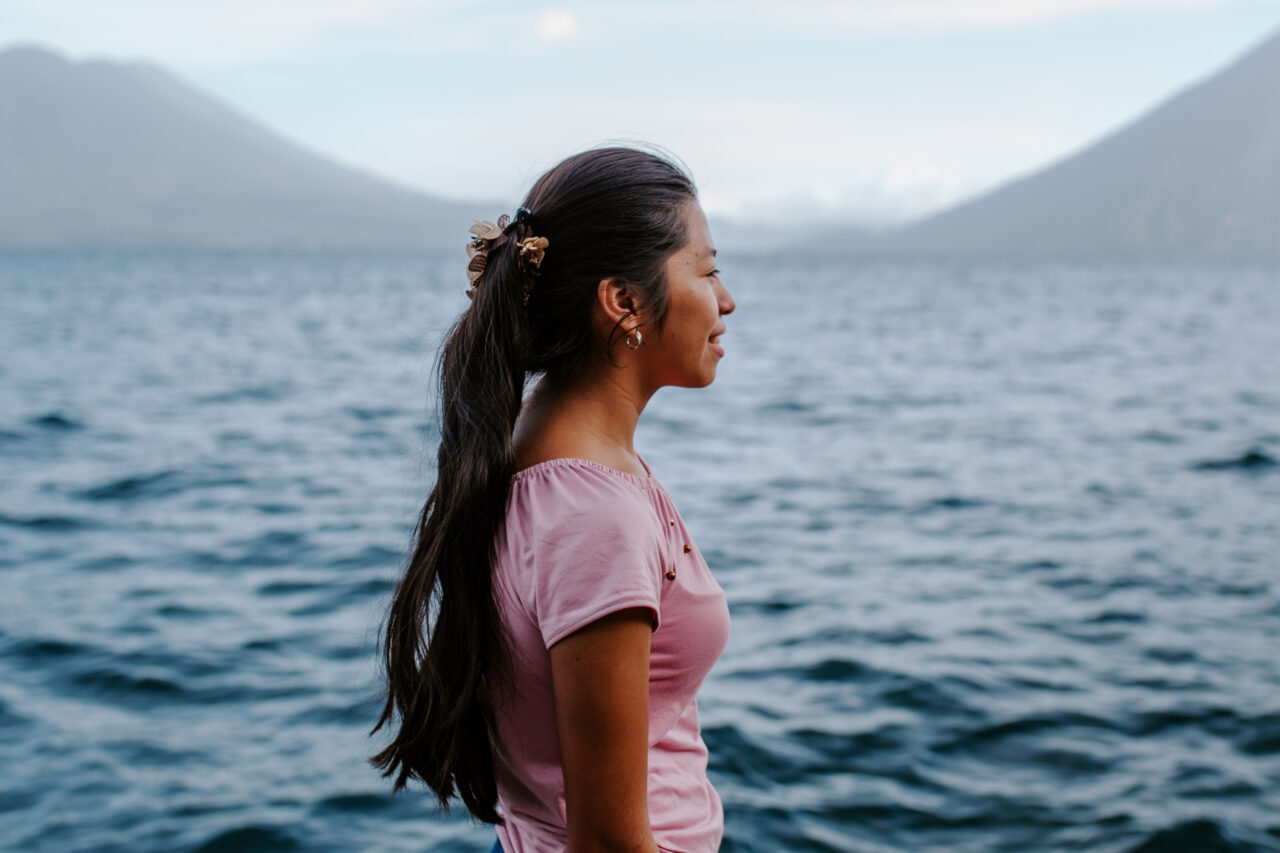LATIN AMERICA—From May 11 - 13, 40 survivors of violence from across Latin America gathered virtually for IJM’s first-ever “Public Narrative: Advocacy and the Power of Story” training. “We are a force of resistance and resilience” shared a survivor from Bolivia in the opening ceremony.
Without a doubt, survivors bring a uniquely powerful and credible voice in calling those in power to action. In this training, survivors of sexual and physical violence, sex trafficking and commercial sexual exploitation from Bolivia, the Dominican Republic, El Salvador and Guatemala learned a new storytelling structure and are now empowered to harness their own stories in the service of leading others to action.
One of IJM’s long-term goals is to support survivors of violence in the journey to health and wholeness. As survivors heal and choose to share their stories, experiences, and voice to encourage other survivors and to bring change to their communities, IJM wants to stand alongside them and serve as a platform that amplifies their voices.
“Each of your stories is a story that deserves to be told with power. It is a story full of moments of beauty and blessings but surely also moments of pain, sadness, and tears … When each of you tells your story, you empower and encourage others to be victorious in the fight against violence and abuse. Together we will move many more communities to be victorious, resilient and become safer nations,” said Pablo Villeda, IJM’s Regional President for Latin America while welcoming the participants of this training.
IJM adapted the work of activist and Harvard professor Marshall Ganz on public narrative to empower survivor leaders in local chapters of the Global Survivor Network. The curriculum is divided into three phases that help learners develop a story of self, a story of us, and a story of now.
“There were many emotional, challenging and encouraging moments through the training. It was incredible to see a group of survivors of violence, women and men, find their voices and equipping themselves to become leaders in their communities. They have begun a new journey to influence, with their voices and stories, their countries’ agendas to prioritize protection,” shared Anaeli Rodas, IJM’s Project Manager for this initiative.
Despite the technological challenges that many encountered, the strong commitment of the survivors participating was clear. One of the survivors from Guatemala even tuned in from a bus so she would not miss parts of the session while commuting.
“I feel like I am not alone anymore, I am not an oddball. I felt empathy from all the other participants from the Latin America Region. I feel supported” shared another survivor leader.
Another survivor leader, a member of Project Phoenix, the local Global Survivor Network chapter in Bolivia, summarized her experience highlighting that “I’ve realized something in this training. I am not afraid anymore. I am braver than before. In this training, I have realized that I am stronger. I feel like the Hulk!"
Survivor leaders from this first group are both preparing to support and coach others in the next regional cohort of survivor leaders, as well as finding opportunities to share their stories with government officials and other community leaders who have the power to bring change, protection and restoration.
“This training is not just about a new methodology to share their stories. It is about finding inspiring ways to leverage them for change. That is what makes this training different.” added Liza Ordoñez, Advocacy and Partnerships Officer for IJM Latin. America. IJM’s long-term goal in Latin America, and globally through its partnership with the Global Survivor Network, is to support survivors who want to raise their voices and share their stories to advocate for justice and protection for the most vulnerable in their countries and communities.
. . .
The image below is of IJM staff from the Latin America region who served as coaches for the workshop.
